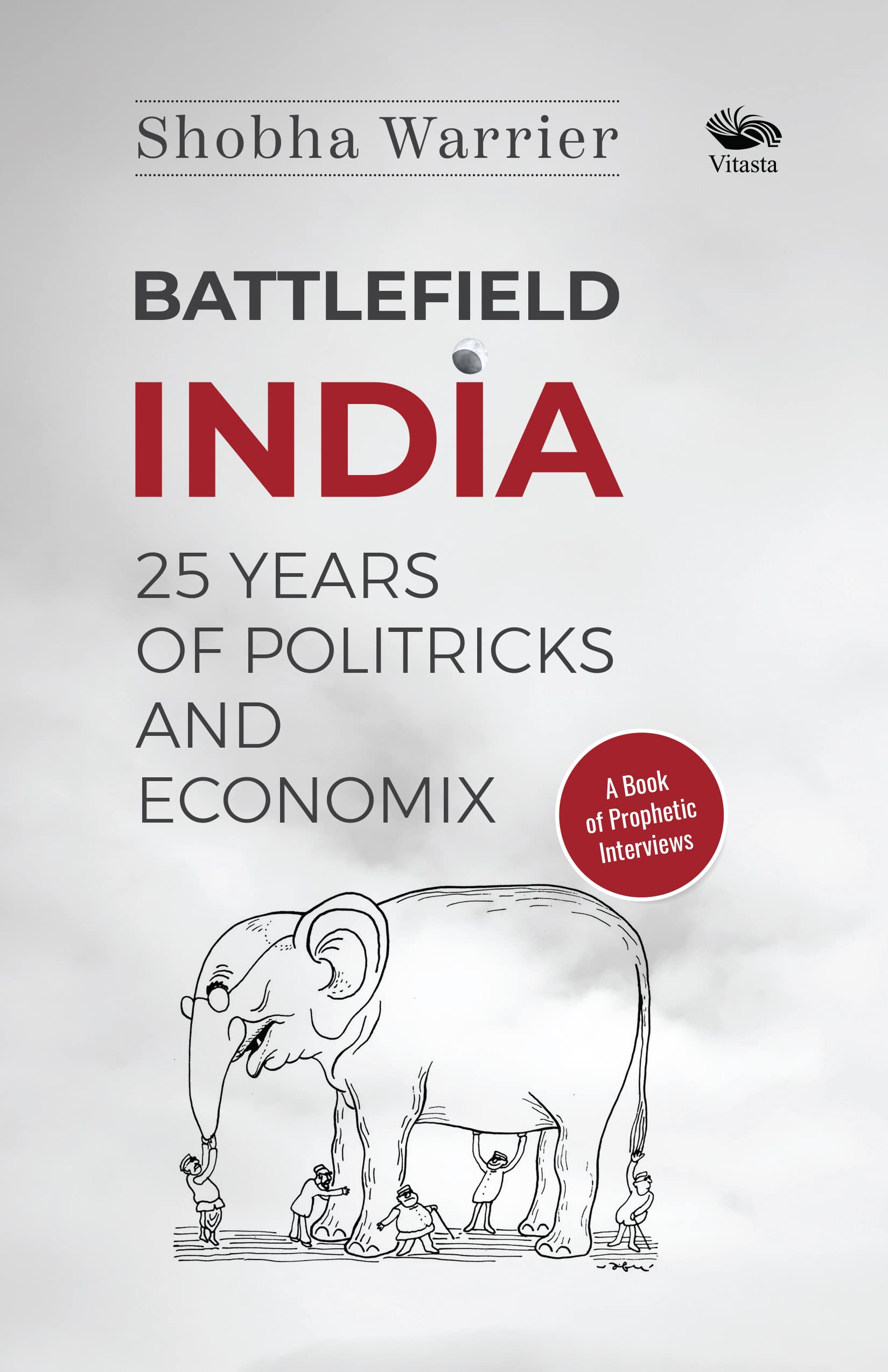Shobha Warrier describes the book as a compendium of 25 years of major happenings in India and groups them under the timeline of six governments that ruled India.
Can interviews of eminent and interesting personalities conducted over two decades form the content of a book? In the absence of any unifying theme they could appear disjointed. Further with only a short historical context limited to a particular time frame such interviews may be unable to present a larger picture.
Shobha Warrier has attempted to overcome these constraints by describing the book as a compendium of 25 years of major happenings in India and grouping them under the timeline of six governments that had ruled India—United Front, NDA 1 and 2, UPA 1 and 2 and Modi 1 and 2. And the overarching historical context is provided by India’s travel from its 50th year of independence in 1997 to its 75th in 2022. Shobha says she is trying to tell this story through her interviews.
The range of personalities that the author has interviewed for Rediff.com (probably the country’s first news portal) is wide ranging—a former president to union ministers to CECs, police officers to social workers, industrialists and intellectuals to top journalists and cartoonists and social activists and scientists.
Though the author calls it a “Book of Prophetic Interviews” the personalities have often failed to foresee the future that accurately. For example, former President R. Venkataraman, having witnessed a spate of unstable or minority governments from 1989, when asked about the emergence of a two-party system, comes up with the rather pessimistic view, “I think this country will not elect a single party to power. There will be a large number of splinter parties.” The election results of 2014 and 2019 proved him wrong and Shobha says she would have loved to have RV’s comments on this if he had been alive.
Another Congress stalwart, C. Subramaniam says, “Today, caste has no meaning or significance at all…and caste distinction is bound to go.” In spite of his wish made in 1997 the country continues to be mired in caste. The readers would have loved to know from these two Tamil leaders on how it was to work under Kamaraj as state ministers and later under Indira Gandhi as Union ministers.
The one interview that I found most interesting was that of former Tamil Nadu DGP, K. Mohandas and how he handled the LTTE issue vis-à-vis the then inscrutable Chief Minister, M.G. Ramachandran whom even a shrewd cop like Mohandas describes as “the most difficult man to understand.” But the former intelligence chief sums up India’s dilemma over the LTTE perfectly in one sentence: “India first created the LTTE monster, then maintained it and later sought to destroy it.”
Another fascinating interview is with Prof M.G. Sasibooshan, the noted historian from Kerala and an authority on the Padmanabhaswamy Temple in Thiruvananthapuram and its treasures. He traces not just the historicity of the temple to the Sangam era of 3rd century AD but also the separation between the treasuries of the state, the temple and the royal family with much clarity. At the same time he points out that it is the “glitter of the yellow metal and the amount of wealth that has dazzled the world not its historical aspect.”
Another offbeat interview that stands out is with two Maoists/Naxals from Kerala—Philip M. Prasad and K. Venu, both protégés of Charu Majumdar, the founder of CPI(ML). While Prasad later became a devotee of Sai Baba, K. Venu turned an advocate for market economy and started a construction company. The converted Venu even gives a three pronged approach to fight Maoism—to convince the leading cadres of the movement ideologically, economic development and strong state machinery that should be used properly and lawfully.
Prasad, who was part of the group that had killed policemen in the infamous attack on Pulpally police station in Kerala, now urges youngsters in Maoist groups not to “commit the same foolishness which we did in the past.” Pointing out that the communist/Maoist revolutions have failed in Russia, Yugoslavia, China and India, a repentant Prasad now prescribes “devotion to God as the only solution.”
Another interview that is filled with interesting nuggets is of Abu Abraham, the famous cartoonist on how he came to draw for British publications and was made to drop “Abraham” for “Abu” as his pen name lest he be mistaken for a Jew during the Suez Canal crisis in the 1960s. And how he travelled with the American army during the Vietnam War and was made a Major “because if anything happened to me, my relatives would be informed soon.” “I must have been the only Major in the US Army in kurta pyjamas,” he quips.
The book would be a welcome addition to school and college libraries, especially where journalism is taught. A good read will show students how to ferret out information by gentle nudges and an inoffensive style of questioning which is in stark contrast to the loud and aggressive interviews we get to witness on television these days.
G.C. Shekhar is a senior journalist based in Chennai.

